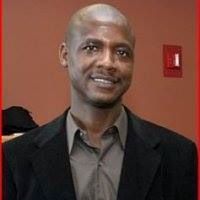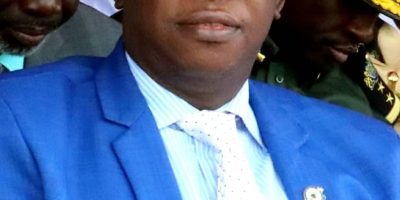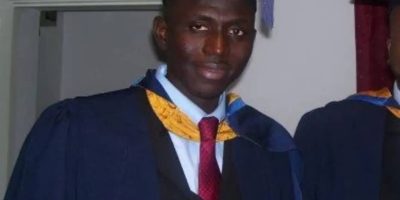Alagi Yorro Jallow
Fatoumatta: These are challenging times in The Gambia. Sad, mournful, and dolorous times, the Gambia opened with ethnic bigotry popularly known as TRIBALISM. Of course. Ethnic chauvinism suddenly seemed to have enlarged itself against the nation. We have problems as a nation, many of which result from our actions or inaction. Faults are thick where love is thin. There is prejudice in the country. Plenty. There is insularity in prodigious quantity. There is animus, antipathy against anyone that is not of your ethnic or religious stock or that belongs to a different political orientation or persuasion. If you meet him, kill him. If you cannot catch him, poison his footsteps, which seems to be the singsong among some Gambian people.
Whatsapp audios are doing the rounds from Banjulians and alleged supporters of Rohey Malick Lowe about her attestations authority as the Mayor of Banjul for voters card. The audios have revealed that the Gambia is locked in a political deathtrap. We are all notorious tribalists. It does not matter our level of education and worldview. We are all in the gutter together. The university lecturer is as rabidly tribal as the village idiot. The stew of a fascistic citizenry with a malevolent elite is our collective damnation. We will either sink or rise together. In terms of politics, we as Gambians have a settled culture of repudiation of common sense and political decency.
Fostering unity in diversity should be a key feature for a country such as the Gambia, which has a rich ethnic and tribal diversity. Accord, acceptance, and understanding are necessary to counter conflictual division. Every so often, the camaraderie of Gambians is tested by the very diversity that defines us. The misfortune here was the manner conversations on social media have been tilting to since the news broke. Conversations on various social media mediums began to assume an ethnic coloration because all the minorities or other tribes are not indigenous tribes of the Gambia. All of a sudden, the fact that the so-called non-indigenous tribes Gambians did not matter anymore.
Ethnicity has been weaponized for subjugation and emotional control. This instrumentation of ethnicity in Gambian politics has consistently paid enormous dividends to the few political elites, who use it purely for personal gain. That is precisely where the problem starts, with infinite consequences.
Nationhood is formed through the collective parchment of ethnicities and their interests. As such, sustained ethnic polarization for political aggrandizement stretches it to its limits. Severally, ordinary Gambians, just like politicians, drink from the cup of complacency on ethnic polarization. Expressions of hatred for other ethnic groups, often by those jostling for control of political affairs, have been long sustained since the Gambia’s independence.
Fatoumatta: To cure the long-standing malaise of political parties as self-serving vehicles of their founders, political parties should have institutionalized as public entities and funded by the exchequer in promoting and protecting minority rights ending systemic inequality Gambian democracy loathing structural tribalism and save our democracy survive the evil of tribalism.
Unfortunately, this has so far not saved political parties from ethnic symbolism. Sadly, most political parties are firmly in the grip of their founders, suffering from ‘founder’s syndrome, and their dominance being relegated to the founder’s area of origin and ethnic extraction.
The strength of ethnic dominance is always strongly manifested in electioneering periods, more so in times of political succession where the incumbent is not seeking re-election. Politics has always served to embed ethnic hegemony intensely, and politicians incline tribal chieftaincy for their success. Combating negative ethnicity comes down to individual values and strengthened deliberate political goodwill to purge that radical evil that is eternally carcinogenic.
Ethnic identity is as old as man’s existence and distinguishes people in their societal groupings. By its nature, ethnicity is a social construct. Its anthropological significance is to strengthen humanity’s social fabric within localities for commerce and other socio-cultural purposes.
When it is explored in this direction, it enables the pursuit of happiness and prosperity for the collective and entrenches the centrality of coexistence. The Gambia exemplifies multiculturalism and pluralism, but diversity and pluralism have never gained prominence in national cohesion. However, they have constantly threatened political wear and tear. This has been a recurring phenomenon on issues in the Gambia. We tend to view and assess issues based on ethnic coloration. Interventions designed to amplify implicit prejudices and implicit stereotyping in the real Gambian context with uncertainties remain as to their effectiveness to ethnic discrimination has gradually become a mainstay of our lives and discourse.
Fatoumatta: Furthermore, this stereotypic nuance has been amplified particularly by the advent of social media. “He is from a particular ethnic group; that is why he behaved the way he did. She is from a particular tribe; that is why she acts in a certain way.” These are just some of the many comments you see on various social media platforms.
Over time in The Gambia, the attribution of a person’s behavior to his or her particular ethnic nationality has reached vast proportions. Let me say it as it is; those from one part of the country are primarily seen as village people, illiterates, uneducated and unrefined. Those from other origins are viewed as greedy and have an insatiable appetite for money and wealth. The Gambians from some other part of the country are primarily seen as fearful and two-faced. There are so many prejudiced and needless stereotypes.
There always some of the banal manners that some Gambians label other Gambians. However, when we travel abroad and are stereotyped and labeled, we hit the roof. Many Gambians who have traveled out of the country have one or two stories about being stereotyped.
It should be categorically stated that the actions of those propagating tribalism and xenophobia in the Gambia are shameful and condemnable. It does not matter which part of the country, location, or tribe they are from, as long as they carry a Gambian birth certificate or passport. We might stereotype them as people from a particular area. However, the outside world, mainly where they live in the diaspora, sees them as Gambians and only Gambians.
It is also pertinent that we begin to do away with negative stereotyping of ourselves as Gambians. It is enough that many a “white man” has prejudicial contempt towards us, as Gambians or black people, and are treated in a degrading and derogatory manner. One should not be in his or her country and experience such treatment. However, this ongoing voter registration exercise, our stereotypical and prejudicial contempt for one another, reared its ugly head in many parts of the country.
While negative stereotypes exist around the world, as a people, we need to come together as a nation and with a single voice condemning the actions of these tribal bigots and many other Gambians that are promoting tribalism in the Gambia and the Gambia Diaspora community, soiling our name and giving the country a bad reputation. We must stop giving life to the stereotyping we are being lumbered with. Stereotyping is illogical, politically incorrect, and morally repugnant. It is illogical because the chance that any given Gambian of a particular tribe is an unsavory sort is only marginally more extraordinary than the chance that anybody else who is Gambian and from a different tribe is also an unsavory sort. One need not be an ethicist to realize that it is unjust to slap such a noxious label on a whole group of people on account of the misdeeds of a few. In other words, unsavory sorts can and do come in every color of the tribal and ethnic rainbow.
Fatoumatta: As a people, we will continue to fail to come together on anything significant if we keep slicing ourselves into more minor factions and identifying ourselves as such. We must embrace the necessity of standing together as one people united. We cannot do that if we linger on fracturing ourselves and our identity. Gambians need to rebuild trust in each other and see each other as one, and the best place to start is in our homes, where we can talk about the higher vision we hold for this nation.
Complete comprehension of unity speaks to the willingness of members of a society to cooperate to thrive. In practice, unity in diversity includes accepting both agreement and disagreement; it leads to methods that embrace consensus while accepting contestations in ways that do not entertain far-reaching, negative stereotypes that develop into enemy images.
In this country, we must continue to explore approaches to fostering unity in diversity while embracing all the individualistic characteristics that make all the ethnicities of the Gambia parts of one whole. To live together across ethnic and tribal differences, we need to nurture that fundamental concept of unity in diversity by accepting the characteristics of every one of ‘us.’ unity in diversity, then, requires recognition of unity without uniformity and diversity without fragmentation. The idea builds on the understanding that stretches beyond mere tolerance of difference. It is an acknowledgment that, as Gambians, we share the critical dimension of identity.
Fatoumatta: Every Gambian outside the country is essentially an ambassador and must project the country positively. As a Gambian abroad, your conduct and actions matter as they might positively or negatively impact the country as a whole. However, what is more, important is that as we celebrate and commend our own when great strides are achieved, we also need to come together as a people and condemn harmful acts, regardless of the part of the country the person is from.




Ma sha Allah great and thanks for sharing